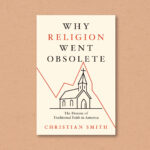Perhaps you’ve noticed the popular recasting of marriage as primarily a very close friendship. Young couples (frequently when posting photos of each other on social media) will say, “I married my best friend.” They intend this as a very high compliment to their spouse. Those who say it typically mean their marriage is a continuation of a companionate relationship that already existed, and that transcended sexual attraction. Going to the altar with their “best friend” meant adding a layer to a relationship that was already well-established, and was primarily platonic.
There’s something to be said for this attitude. But contrary to what many think, there’s also something problematic about treating friendship as the pinnacle of married love—something that is a symptom of our cultural confusion about the meaning of love, and that I think C. S. Lewis, who distinguished between several types of love, can help us with.
When Marrying Your Best Friend Is Good
I’ve known a number of couples who genuinely did begin their association as friends. They enjoyed common interests, pursuits, or places of worship. They gravitated toward one another in conversation, because they found each other interesting. Only later did something else develop.
Frequently, attraction begins in one of them before the other. At some point, the fact becomes obvious, and since it’s never wise to leave such powerful forces dormant and unaddressed, the two must make a decision: either to close off the possibility of a romance, or to embrace it. Couples who choose the latter (especially men) often report a sense of epiphany.
“I’ve been enjoying this woman’s presence and company for so long, the fact that she’s an eligible mate escaped me.” Sometimes, this is because his friend is not what he would’ve previously described as his physical “type.” I’ve heard women say the same of their husbands.
It’s not a bad thing to marry your best friend.
It could also be that one or both were so absorbed in other pursuits, including other romantic interests, that the friendship never had a chance to develop in a new direction. For Lewis, who took years to realize and admit his attraction to his future wife, Joy Davidman, it seems romance simply wasn’t on his radar. Nonetheless, the literary friendship gave birth to something new and beautiful. It’s not a bad thing to marry your best friend.
Confusing Our Love Categories
It is bad, however, to treat friendship as the pinnacle or ideal of married love, or else to imply that marriages not based on very close friendship are deficient. To suggest, even unintentionally, that marriage is or ought to be a kind of very intense friendship (with the benefits of sex and family thrown in) is to seriously confuse the different words and concepts Scripture uses to describe love—or, more precisely, loves. All four of them.
Most marriages throughout history have not been based first and foremost on friendship. Many of history’s greatest marriages were based on economic, social, or even political necessity. The marriage of Mary to Joseph, arguably the most consequential union between two people ever established, was likely arranged by fathers. And nowhere in all the instructional passages about marriage in the New Testament do we find spouses commanded or encouraged to cultivate friendship.
Most marriages throughout history have not been based first and foremost on friendship.
What we do find is a rapturous vision of partnership in dominion and glory—of man and woman together showing forth the image of God and embodying a sacred mystery at the heart of both creation and redemption. What we find inaugurated in Genesis, celebrated in the Song of Solomon, confirmed and defended in the Gospels, sanctified in Paul, and fulfilled in Revelation is so much more than a companionate rooming arrangement. To describe marriage—eros as God intended it—as primarily a type of friendship is to risk cheapening both it and friendship love.
To say “I married my best friend” may be true. But to leave it at that is to demote my spouse from her rightful and highest titles of bride and helpmate.
Don’t Eroticize Friendship
Our modern habit of making friendship the gold standard in marriage parallels other serious but popular confusions or conflations between types of love. Consider the opposite phenomenon, in which friendship is eroticized. I recently saw someone on Twitter repeat the tired and obnoxious claim that The Lord of the Rings has undertones of same-sex attraction. “[J. R. R.] Tolkien,” he claimed, “only wrote two kinds of dudes: beaming wife guys and yearning foxhole homosexuals.” A much wiser Twitter user replied by quoting Lewis’s book, The Four Loves: “Those who cannot conceive Friendship as a substantive love but only as a disguise or elaboration of Eros betray the fact that they have never had a Friend.”
To say ‘I married my best friend’ may be true. But to leave it at that is to demote my spouse from her rightful and highest titles of bride and helpmate.
In the book, Lewis continues the quotation, explaining something about the difference between friendship and romantic love, or philia and eros, to use the Greek terms:
The rest of us know that though we can have erotic love and friendship for the same person yet in some ways nothing is less like a Friendship than a love-affair. Lovers are always talking to one another about their love; Friends hardly ever about their Friendship. Lovers are normally face to face, absorbed in each other; Friends side by side, absorbed in some common interest. Above all, Eros (while it lasts) is necessarily between two only. But two, far from being the necessary number for Friendship, is not even the best.
Demisexuality and the Death of True Eros
Or consider the effort to rescue eros itself from mere animal physicality by redefining it as a sexual identity or orientation akin to “gay,” “lesbian,” or “bisexual.” Michaela Kennedy-Cuomo, the 23-year-old daughter of New York’s governor, recently posted an interview to Instagram in which she described herself as “demisexual.” For those unfamiliar with this neologism, a Guardian columnist defines demisexuals as “people who aren’t sexually attracted to others unless they form a strong emotional bond with them first.”
The same columnist rightly notes how unremarkable this so-called orientation is, and how Cuomo’s declaring it an esoteric sexual identity smacks of attention-seeking by an already rich and privileged young woman. She goes on to observe, though, how sexualized and lascivious our culture must be for anyone to feel the need to declare that emotions and relationship play some role in her sexuality. I would suggest Cuomo’s need to reintroduce actual eros into the conversation about sex is yet another example of how we’ve confused and conflated the various types of love.
Redeeming Love
Our culture, now more than ever, has no idea what “love” means. At times, it treats love as little more than a synonym for genital arousal. At other times, it offers a gnostic ideal in which all love—even the love between husband and wife—is nothing but an intense form of friendship between people who’ve decided to live and sleep together. We vacillate between Playboy and Hallmark, exalting animal lust at one moment and sentimental schmaltz the next.
We vacillate between Playboy and Hallmark, exalting animal lust at one moment and sentimental schmaltz the next.
In the crossfire, concepts like real, disinterested friendship are slandered as “repressed homosexuality,” if not forgotten entirely. And the greatest of all loves—agape—the divine and spiritual charity that drove Christ to lay down his life for the church and which God intended to vivify and sanctify the other loves—is nowhere to be found.
Lewis’s Four Loves presents a grand vision that helps us see how rightly distinguishing between Storge, Eros, Philia, and Agape can repair the damage our culture has done to our understanding of each. But even more important, Lewis points us to the scriptural well from which he drew his rich and satisfying knowledge of the loves—and to the Lover in whose relationship with his people we experience all four perfectly, yet distinctly.
Download your free Christmas playlist by TGC editor Brett McCracken!
 It’s that time of year, when the world falls in love—with Christmas music! If you’re ready to immerse yourself in the sounds of the season, we’ve got a brand-new playlist for you. The Gospel Coalition’s free 2025 Christmas playlist is full of joyful, festive, and nostalgic songs to help you celebrate the sweetness of this sacred season.
It’s that time of year, when the world falls in love—with Christmas music! If you’re ready to immerse yourself in the sounds of the season, we’ve got a brand-new playlist for you. The Gospel Coalition’s free 2025 Christmas playlist is full of joyful, festive, and nostalgic songs to help you celebrate the sweetness of this sacred season.
The 75 songs on this playlist are all recordings from at least 20 years ago—most of them from further back in the 1950s and 1960s. Each song has been thoughtfully selected by TGC Arts & Culture Editor Brett McCracken to cultivate a fun but meaningful mix of vintage Christmas vibes.
To start listening to this free resource, simply click below to receive your link to the private playlist on Spotify or Apple Music.


































